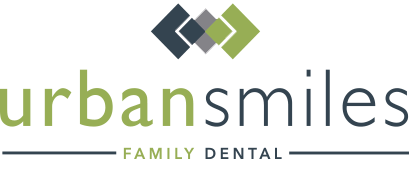Brushing your teeth twice a day and using dental floss once a day are the two most obvious ways to keep your teeth clean. However, there are more aspects to consider that may affect your dental health. Good oral hygiene is of paramount significance and cannot be stressed enough. Bad breath, gum disease, and tooth decay may all be avoided with regular brushing, flossing, and rinses (halitosis). Avoiding the buildup of plaque, a bacterial biofilm that may adhere to teeth if they aren’t properly cleaned, is an important part of good dental hygiene. Gingivitis and periodontal disease are more severe consequences of plaque being untreated. It’s crucial to see the dentist often for exams in addition to maintaining a decent oral hygiene routine at home.
Do not skip your twice-daily brushings.
Two minutes is the minimum amount of time you should spend cleaning your teeth twice a day. Bleeding gums are a common side effect of insufficient tooth brushing time. It’s important to care for your teeth by brushing them twice a day: when you first get up and before you go to sleep. Two minutes is the recommended time to use a toothbrush and a tiny handheld mirror to thoroughly clean your teeth. Brushing your teeth before night and first thing in the morning with the same toothbrush might spread bacteria and leave a stain on your teeth. You shouldn’t start brushing your teeth while you’re still chewing food or drinking, but you may go ahead and start brushing as soon as you’re done.
Rinse your mouth out often.
Many people find that using a mouthwash helps them keep their mouths clean and healthy. Daily use of a mouthwash removes more than simply germs from the mouth. In addition to reducing the amount of germs on your teeth, washing with water may help you feel fresher. There is a wide range in both potency and composition of mouth rinses. To avoid accidental ingestion, use a mouthwash with a subtle flavour and no added alcohol. To prevent tooth decay and bad breath, rinse your mouth thoroughly with a mouthwash after brushing your teeth but before consuming anything. The effectiveness of the mouthwash in removing germs will then be maximized.
An alternative to the hard-bristled toothbrush is the soft-bristled toothbrush.
It’s preferable to use a toothbrush with soft bristles rather than a rough one. Damage to your gums and enamel may be caused by using a hard toothbrush, since its bristles are too stiff to be gentle on your teeth. Inflammation of the gums (gingivitis) is a potential outcome of this. Plaque may be removed more easily using a soft toothbrush, and the brushing motion won’t do any damage to the teeth or gums. And it won’t make you more susceptible to gum disease or tooth decay. While it is recommended that you use just one toothbrush for your whole mouth, it is OK to alternate between various brushes if you own more than one. Select a brush with gentle bristles that are somewhat longer than average.
It’s recommended that you use fluoride toothpaste.
Using fluoride-containing toothpaste is an excellent measure for avoiding dental caries and gum disease. By fortifying tooth enamel, fluoride helps stave against cavities. There is less chance of getting gingivitis or periodontal disease, and it also stops germs from multiplying. There are several varieties of fluoride toothpaste available, just as there are mouthwashes. It’s important to choose one that has a moderate flavour and no alcohol, since both of these may be dangerous in large doses. Brushing your teeth after using fluoride toothpaste is recommended before consuming any food or drink to remove any lingering fluoride. If there are still bits of food stuck in your teeth, you should brush them twice a day.
Maintaining regular exercise and good dental hygiene is essential.
Prevention of oral illnesses and promotion of excellent oral health may be as simple as maintaining a regular exercise routine and practising good oral hygiene practices. You may lower your chance of acquiring cardiovascular and respiratory problems by maintaining a regular exercise routine. Brushing twice a day, flossing once a day, and avoiding tobacco and alcohol are all practices that contribute to healthy teeth and gums. You can keep your teeth and gums healthy and avoid dental problems by doing all of these things.
Maintaining good dental hygiene is crucial. Regular brushing and flossing are two of the most common dental hygiene recommendations from dentists. Gingivitis, tooth decay, and poor breath are just some of the oral disorders that may be avoided with regular brushing, flossing, and mouth rinse use. In addition to brushing your teeth twice a day, you should use a mouthwash once daily to remove food particles and germs from your mouth. It’s ideal to use a toothbrush with soft bristles. Keep your teeth and gums in better shape with regular brushing and flossing.
Make your appointment today with Dr. Rob Andrew and Urban Smiles Family Dental. 780.989.6030
Connect with us below:

